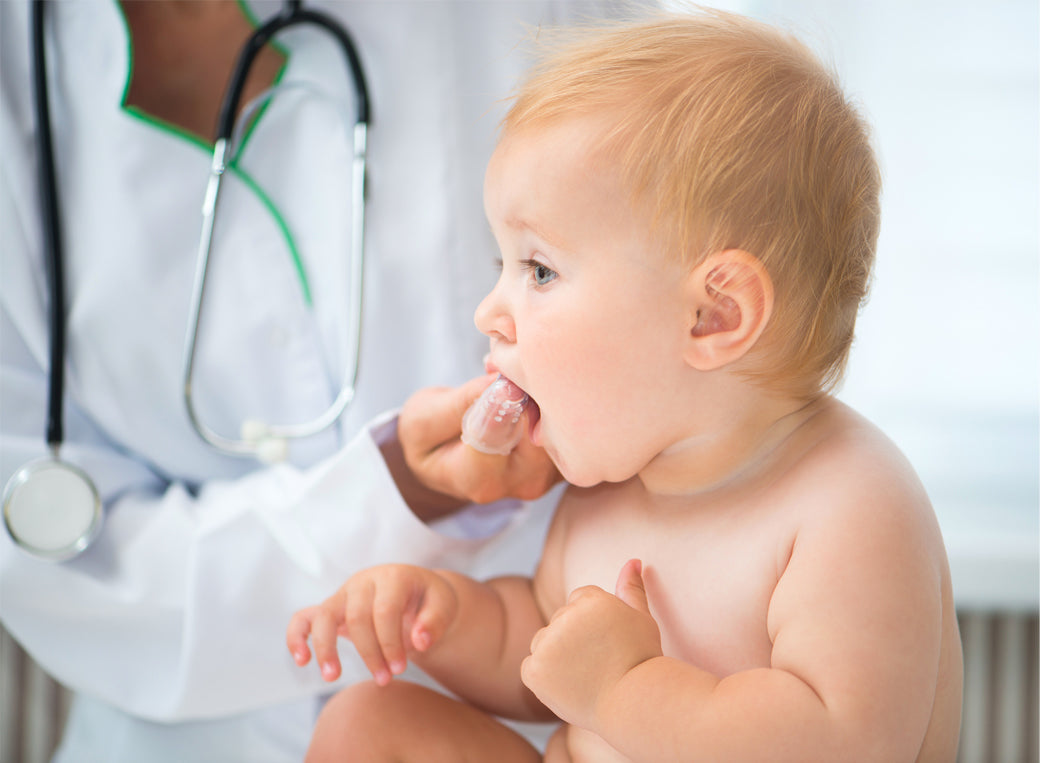Teething and oral hygiene

The formation of teeth already takes place in the fetus around the third month of the mother's pregnancy but it is only towards the 6-8 months of the child's life that the first milk teeth begin to appear, also called "deciduous" because they are destined to fall out and then be replaced by the permanent ones. In fact, however, the times of eruption are quite variable: there are children who begin to have their first teeth as early as three months old, while for others, teeth can appear even around one year of age.
For good oral health and for the development of healthy, caries-free teeth, specialists suggest starting oral hygiene care very early, starting immediately from the first months of the child's life. The milk teeth then, must be treated because the health of the definitive teeth also depends on them and if the child gets used to taking care of oral hygiene from an early age, he will be more protected from the risk of tooth decay and tartar in the years to come.
Cleaning the gums
From 3 months of age, the baby's gums begin the preparation phase for the eruption of the first teeth. The area of the gum around the erupting tooth begins to swell, become inflamed and painful. At this moment the child is experiencing discomfort and pain together, mainly caused by the bacterial load that attacks the gums, more subject at that moment to the attack of the bacteria present in the oral cavity. The baby feels the desire to bite and tries to ease the pain with a natural massaging action. After each feed, pass a cloth on the gums on the upper and lower arches of the mouth, gently massaging the surface and sides, it helps to remove the bacterial plaque responsible for the inflammatory action and soothes irritated gums.
The importance of lingual hygiene
The tongue with its rough and papillose upper part retains food residues, including milk and represents the ideal ecosystem for bacteria that can multiply and sometimes give rise to annoying irritations or inflammatory processes. Clinical studies show that cleaning the tongue reduces the bacterial layer by up to 30-40%, significantly lowering the risk of infectious diseases. Cleaning must be done by lightly passing the finger wrapped in sterile gauze from the initial part of the tongue (towards the throat) towards the tip of the tongue and never vice versa, being careful not to apply too much pressure which could make the child nervous especially the first few times
The use of the toothbrush
Around the 1st year of age it is important to get the child used to using the toothbrush 2 times a day. In this phase toothpaste is not necessary and it is only later, around 2 years of age that it is recommended to use 1000 ppm of fluoridated toothpaste, the dose equal to the size of a grain of rice. The toothbrush must look with its tips towards the gum and rest at 45° on the neck of the tooth; brushing must always take place from the gum towards the tooth and as they say in jargon " from pink towards white ".
Until the child is of school age and therefore able to brush his teeth independently having learned well to clean all surfaces, it is important that an adult is always present to supervise oral hygiene and check that it is carried out correctly
The electric toothbrush is more effective than the manual toothbrush
Using an electric toothbrush makes cleaning your teeth more effective and there are two types on the market: Sonic technology electric toothbrushes and those with a rotary movement.
The technology of sonic electric toothbrushes differs greatly from normal electric toothbrushes with rotary movement for the effectiveness in cleaning and for the vertical movement of the bristles which faithfully reproduces the action recommended by dentists for a superior capacity in removing residues and plaque.
The electric toothbrush for babies from 3 months old, approved by AIO - Italian Dentists Association
An electric toothbrush like Nuvita Sonic Clean & Care allows you to take care of children's oral hygiene from 3 months of age; with Sonic technology at 16,000 vibrations per minute and with soft DuPont nylon bristles, it is 5 times more effective than a normal electric toothbrush for optimal teeth cleaning.
It is approved by AIO, the Italian Dentists Association, which certifies its delicacy and efficacy in promoting and maintaining correct hygiene of the oral cavity starting from the first months of age of children to ensure them the best prevention from the risks of caries for adult life.





